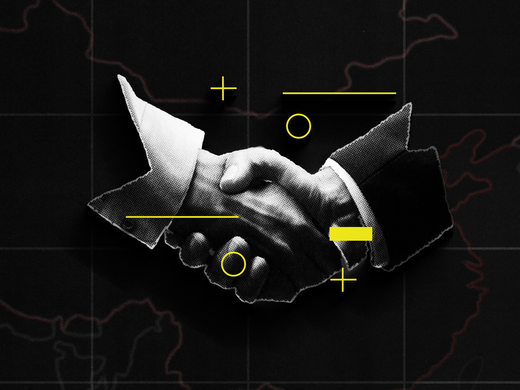Wars in Europe and the Middle East, and the growing threat of conflict in the Taiwan Strait, are stark evidence that a multipolar world is taking shape. The US-led, rules-based international order has broken down. Changing demographics, historic debt levels, climate change impacts and the rise of artificial intelligence (AI) place further pressure on the existing system and its institutions. This, at a time when Canada is struggling to boost economic productivity, bolster national security and data sovereignty, and maintain living standards. This situation has profound policy implications.
A crux of the problem is population decline. By 2040, Africa alone will have a large working-age majority. But migration isn’t enough to offset this decline in Canada, where an aging population exacerbates current historically high public debt levels, undermining government transfers on which societies rely.
These conclusions are based on data. Our research projects demographic, economic and fiscal indicators to 2040, allowing us to draw inferences about the impacts on global economic trends, geopolitics and multilateral institutions. The results are striking. They indicate that Canada’s time of relative security — protected as we have been by oceans to our north, east and west, and a democratic superpower to our south — is coming to an end.
While the United States remains the world’s leading military and economic power, and will for years to come, the country’s political system is sclerotic. Neither side of the US political spectrum has of late demonstrated the leverage, or indeed the desire, to lead a uniform and effective international system, founded on liberalized trade, stable security and the rule of law. There is little reason to expect this will change in the years ahead.
This leaves China, still lagging the United States economically and militarily, as the world’s only other viable superpower. But while China has a formidable development model with partnerships around the world, it lacks the means and the foreign policy traditions to impose or enforce a new international system.
Moreover, the country’s fast-rising military and economic prowess masks a deeper problem: It faces an unprecedented crisis of population decline, with corresponding declines in economic growth likely under most scenarios. This will be the challenge for almost all economies, but whether the autocratic Chinese governance model can overcome these internal pressures and continue its rapid growth is debatable.
India is an important rising power, but not yet one with the capacity for multifaceted, global reach. The European Union, while large and influential, has not been able to fully unify and project power. Russia, despite its attempted conquest of Ukraine and interference around the world, has a small and fading economy. Sub-Saharan Africa’s dramatically youthful demographics hold enormous potential, but governance models are tenuous and fragile.
Although multipolarity, in theory, presents opportunities for smaller and middle powers to exert greater influence, the reality is that our existing institutions — whether it be the International Monetary Fund, World Bank, World Trade Organization or the United Nations itself — were built for an old system. This means that middle powers such as Canada, with vested interests in the current system, will be buffeted by its erosion.
In any scenario, technology is the great wildcard. It is a double-edged sword that offers great potential to help solve today’s challenges, but also creates fundamental downside risks. We expect technology diffusion to accelerate, including the transformational aspects of AI, creating a race for states and tech giants to harness its benefits and gain competitive advantage. The protectionist global semiconductor trade war already under way, with AI chips at the fulcrum, foreshadows the intense competition to come.
If there is one thing we know, it’s that surprise is a constant in global affairs. It is still possible that existing multilateral institutions will be reformed to address current challenges. Common economic interests, and the desire to avoid catastrophic conflict, may yet bring major powers back to a point where they seek consensus. But on balance, our analysis suggests the outlook is skewed to deeper fragmentation, with the formation of strategic blocs, rather than any restoration of the old order.
The path ahead is fraught with risk. This offers Canadians opportunities for innovation, cooperation and the reimagining of international governance. But it also means we face a sea change in our expectations for our collective safety, security and prosperity. These have long seemed guaranteed. They no longer are. A shift in perspective, including at the level of governance and political leadership, is urgently needed.



